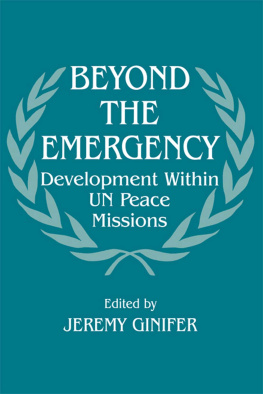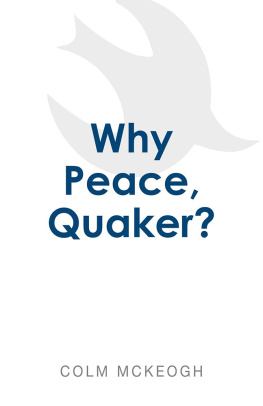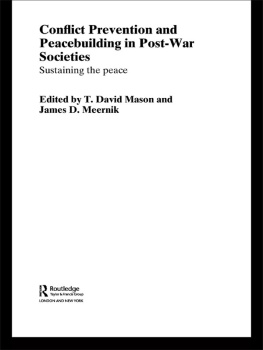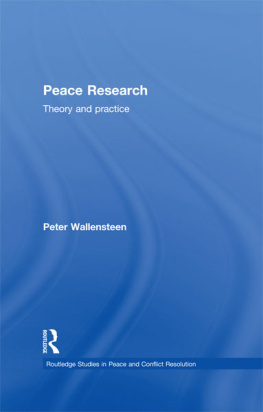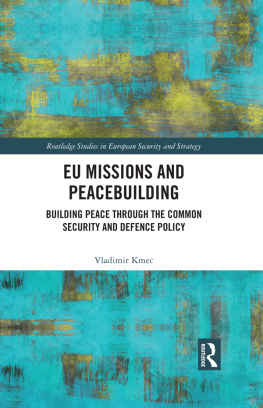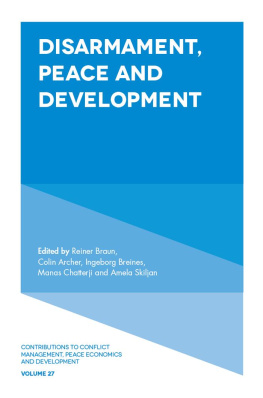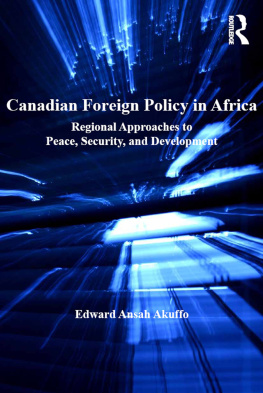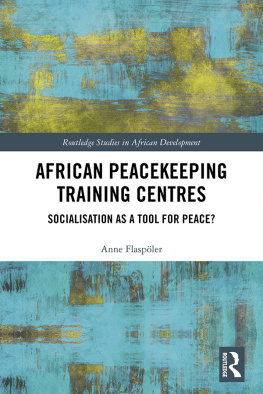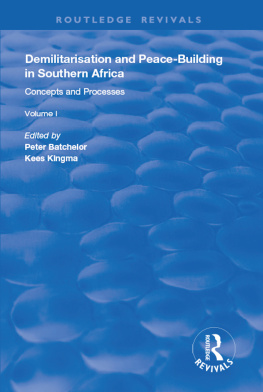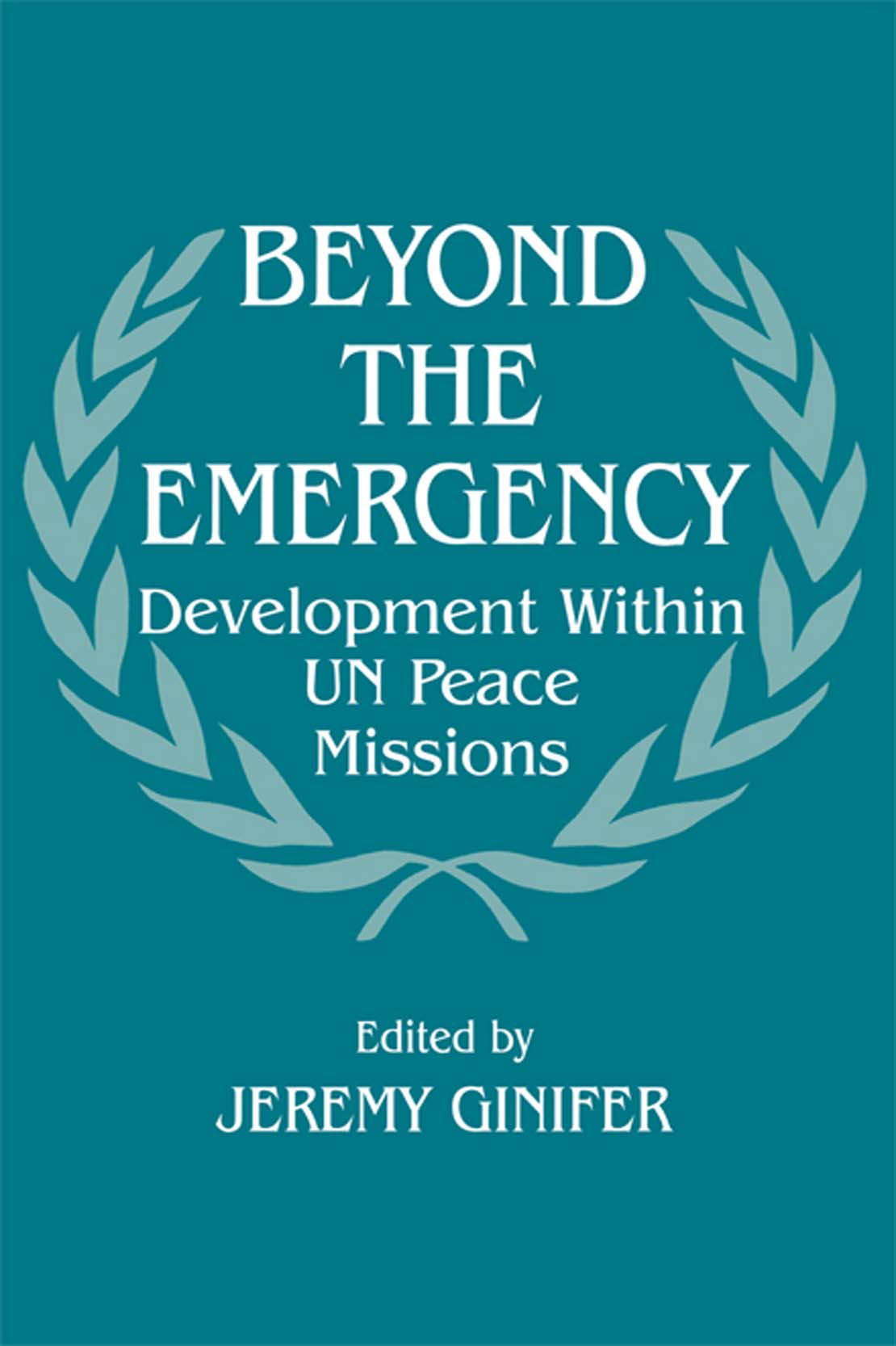A catalogue record for this book is available from the British Library.
A catalog record for this book is available from the Library of Congress.
Notes on Contributors
Chris Alden is a Lecturer in International Relations in the University of the Witwatersrand, South Africa. He is the author of Apartheid's Last Stand: the Rise and Fall of the South African Security State (Macmillan, 1996), co-editor of Afrique du Sud: Le Cap de Bonne Esperance (Temps Modernes, 1995) and Paris, Pretoria and the African Continent: the International Relations of States and Societies in Transition (Macmillan, 1996). He has published on African politics, the UN and regional security issues.
Jeremy Ginifer is Deputy Director of the UN Programme at the Norwegian Institute of International Affairs (NUPI), Oslo, and also a Visiting Research Fellow at the Mountbatten Centre for International Studies, University of Southampton, UK. He is currently working on development within UN peace missions, disarmament and demobilization operations within southern Africa and identity politics in internal conflicts. His recent publications have concentrated on peacekeeping and humanitarianism in Africa.
Omar Halim is currently a Research Associate at the Centre for Strategic and International Studies, Jakarta, Indonesia. In his 28-year service with the United Nations, he worked in the Department of International Economic and Social Affairs, the Department of Public Information, the Department of Political Affairs, and the Department of Peacekeeping Operations. During the last seven of these years he served in peacekeeping missions in Namibia, Lebanon, Somalia and Liberia.
Assis Malaquias is the Executive Director of the Angola Institute in Washington, DC, and an Associate Researcher at the Centre for Foreign Policy Studies, Dalhousie University, Halifax. His current research focuses on transitions to democracy in African countries, including the prospects for sustainable democratic development in Angola.
Donald Rothchild is Professor of Political Science at the University of California, Davis. He is the author of Racial Bargaining in Independent Kenya and co-author of Politics and Society in Contemporary Africa. His latest co-authored book is Sovereignty as Responsibility: Conflict Management in Africa.
Timothy M. Shaw is Professor of Political Science and International Development Studies and Director of the Centre for Foreign Policy Studies at Dalhousie University. He has recently published articles on Africa's political economy in Africa Today, European Journal of Development Research, International Journal and Mershon International Studies Review. He has been a faculty member at universities in Nigeria, South Africa, Uganda, Zambia and Zimbabwe, and serves as General Editor of the Macmillan/St. Martin's Press International Political Economy Series.
Hugo Slim is Director of the Centre for Development and Emergency Planning (CENDEP) at the Oxford Brookes University. As well as writing on development issues, he has worked in humanitarian emergencies for the United Nations and the Save the Children Fund in Ethiopia, Sudan, Bangladesh and Iraqi Kurdistan.
Stephen John Stedman is an Associate Professor of African Studies at the Johns Hopkins University School of Advanced International Studies and a visiting scholar at the Center for International Security and Arms Control at Stanford University. He is currently writing on American foreign policy and internal conflicts in the post-Cold War period; the problem of spoilers in peace processes; and conflict resolution in civil wars. He is the author of Peacemaking in Civil War: International Mediation in Zimbabwe, 19741980 and co-author of The New Is Not yet Born: Conflict Resolution in Southern Africa.
J. David Whaley is currently the first Resident Co-ordinator of the Operational Activities for Development of the United Nations System and Resident Representative of the United Nations Development Programme (UNDP) in South Africa. He has extensive experience in the management of international development co-operation in Africa, having served as Resident Co-ordinator and Resident Representative in Benin (197984), in Algeria (198488) and in Kenya (199295). In 1988 and 1990 he served as Director for Operational Activities of the Office of the Director General for International Co-operation and Development.
The essays in this volume focus on the issue of development within the UN peace mission. It examines a number of critical issues relating to the interface between development, relief and peacekeeping, including institutional co-ordination, the implementation of development and peacebuilding in the field, with particular reference to Africa, and the contending philosophies that sometimes underpin military and developmental approaches to human security. Not least, it poses the question of how sustainable development fits within the post-conflict space of UN peace missions. These missions, and increasingly humanitarianism, have tended to focus in the 1990s on short-term emergency aid and military security issues. Important as these are, there is a growing need to think long-term beyond the emergency and consider how to implement developmental strategies that allow war-torn societies to rebuild on a sustainable basis.
This volume draws on a series of presentations made at the seminar Beyond the Emergency: Development within UN Peace Missions, held in Pretoria on 1314 March 1996, by the Norwegian Institute of International Affairs (NUPI) and the Institute for Defence Policy (IDP), and supported by the Norwegian Agency for Development Co-operation (NORAD). The editor thanks all three organizations for their support and the authors who worked so hard to produce excellent articles within tight deadlines. Thanks are also due to Michael Pugh, editor of International Peacekeeping, for his help with this book.
Development has increasingly become a function of the UN peace mission during the 1990s. However, it has tended to be overshadowed in a number of missions by military security and emergency relief issues. The proposition explored in this article is that a greater developmental emphasis during UN missions may be productive in terms of bringing about durable peace processes. However, this implies that development needs to be recast in terms of its positioning within UN conflict resolution and peace missions. Development has not been coherently conceptualized within UN conflict resolution, and military security and political modes of thinking have tended to prevail in peace missions. If development is to assume a central role in conflict prevention and resolution, problematic issues relating to contending philosophical, institutional and implementational approaches within the UN Secretariat will need to be addressed.

